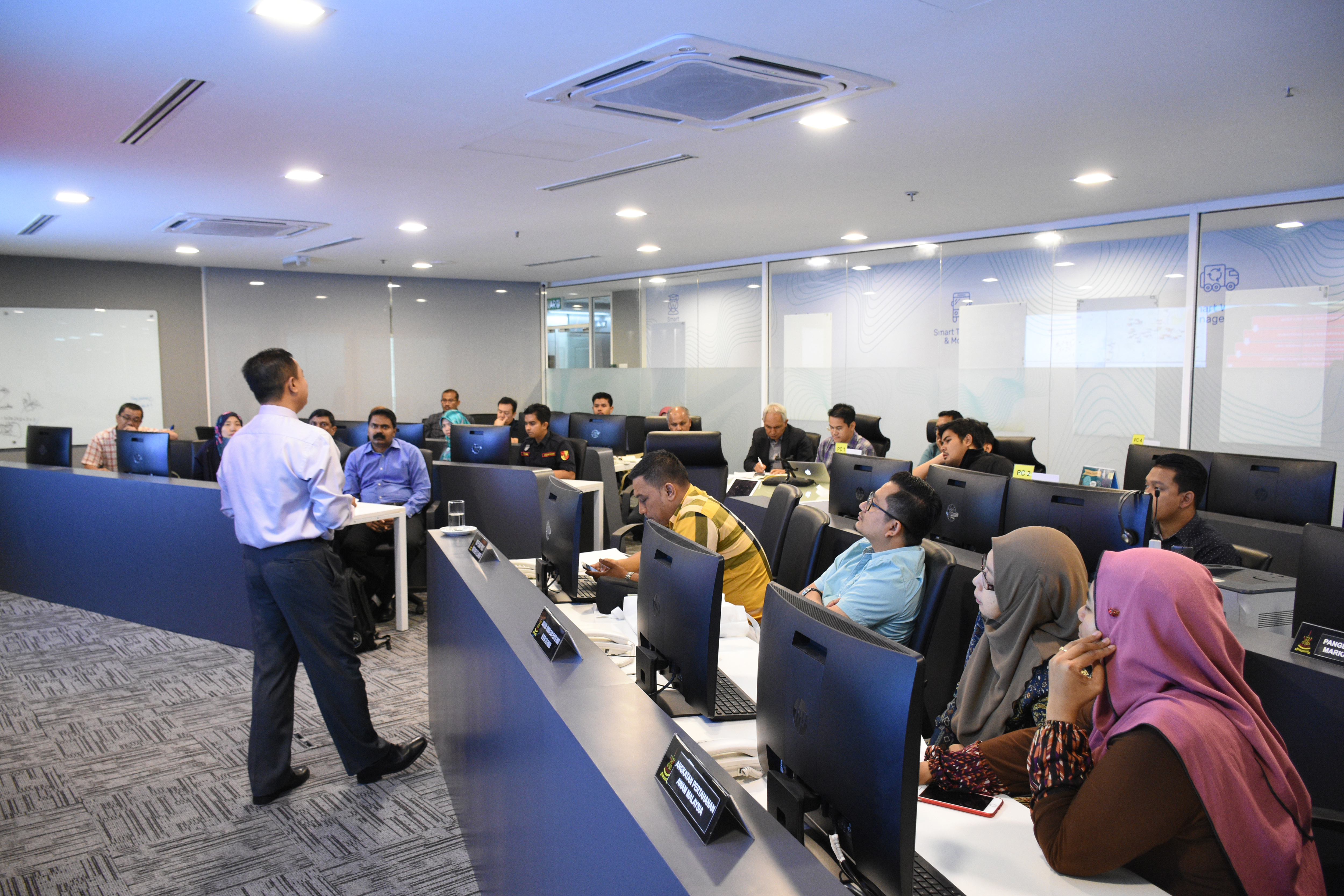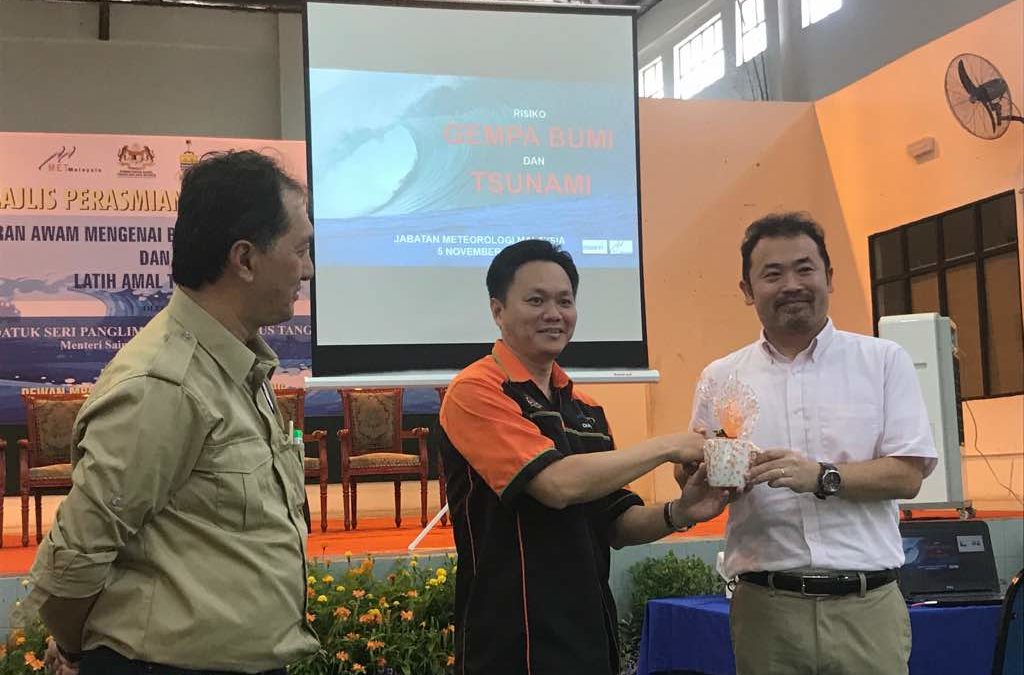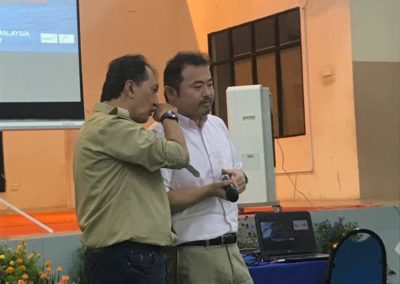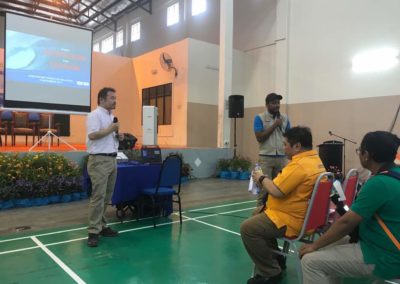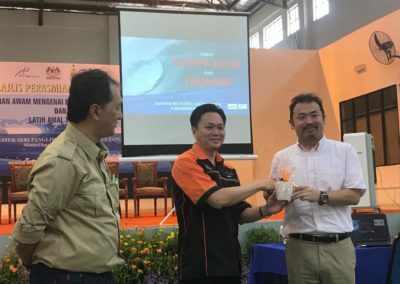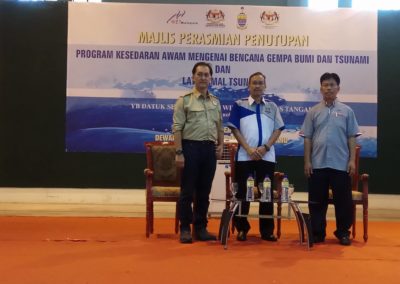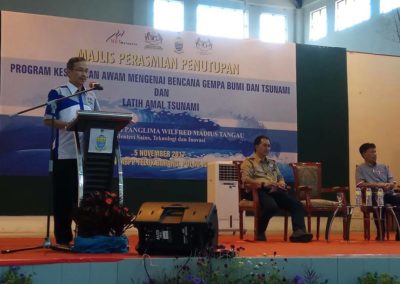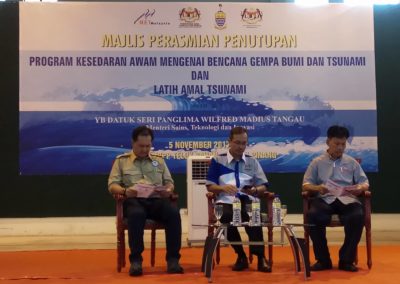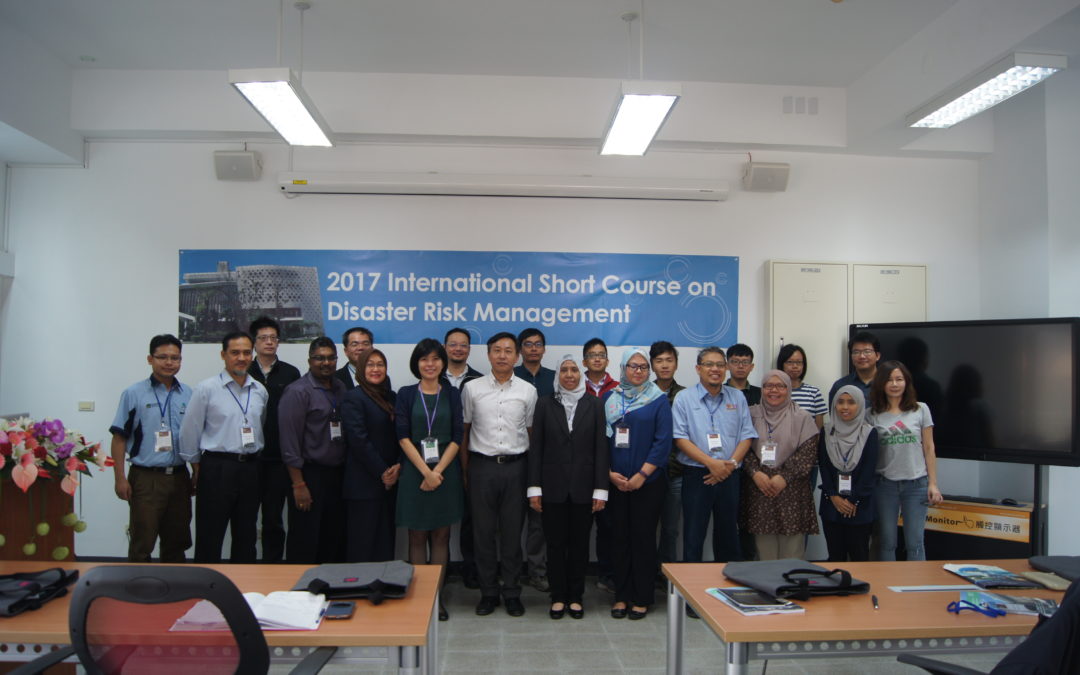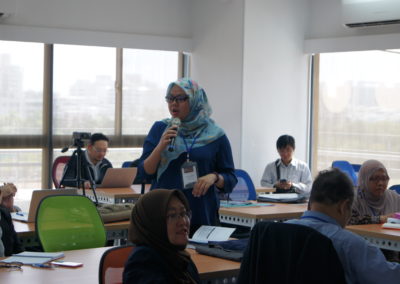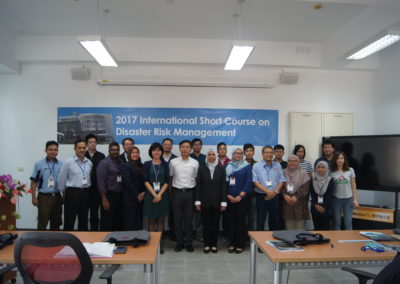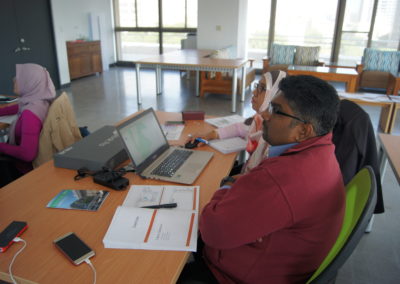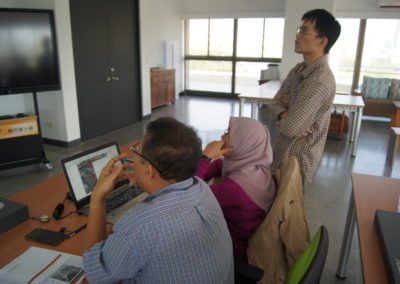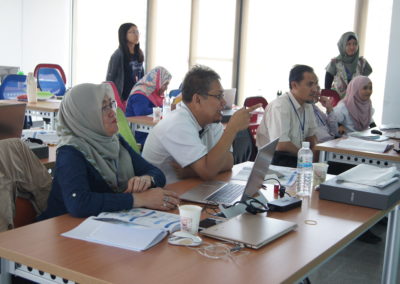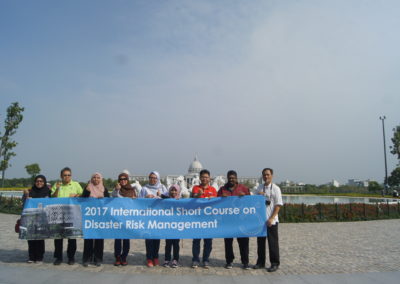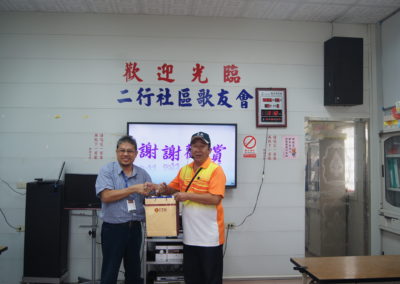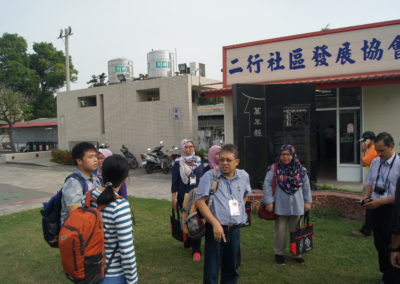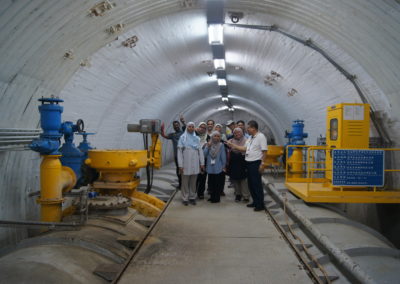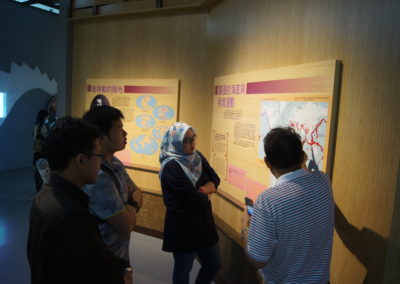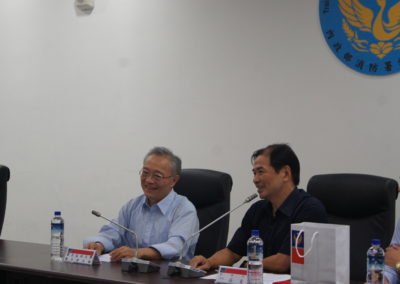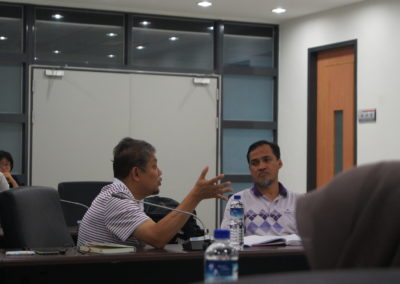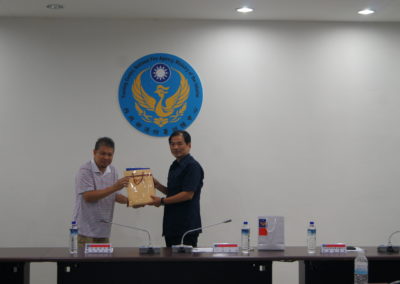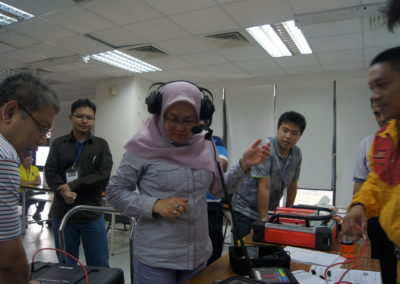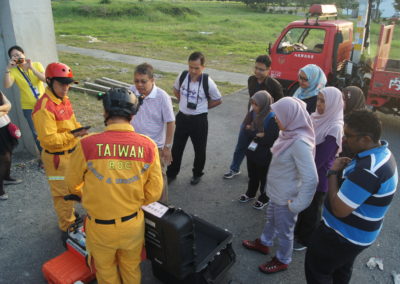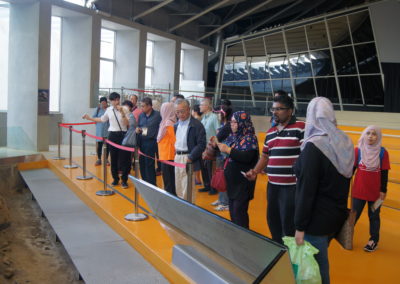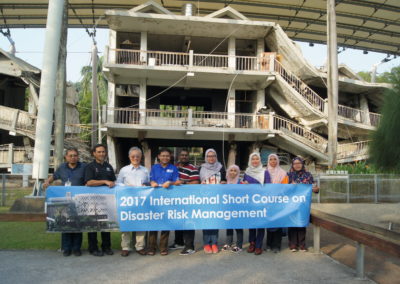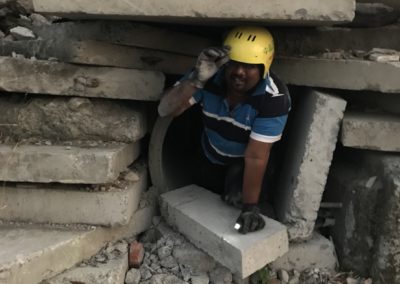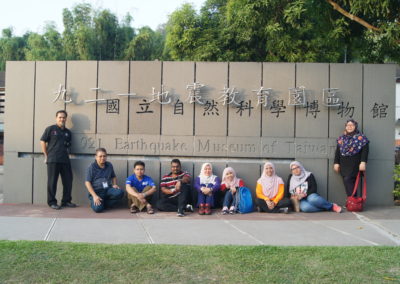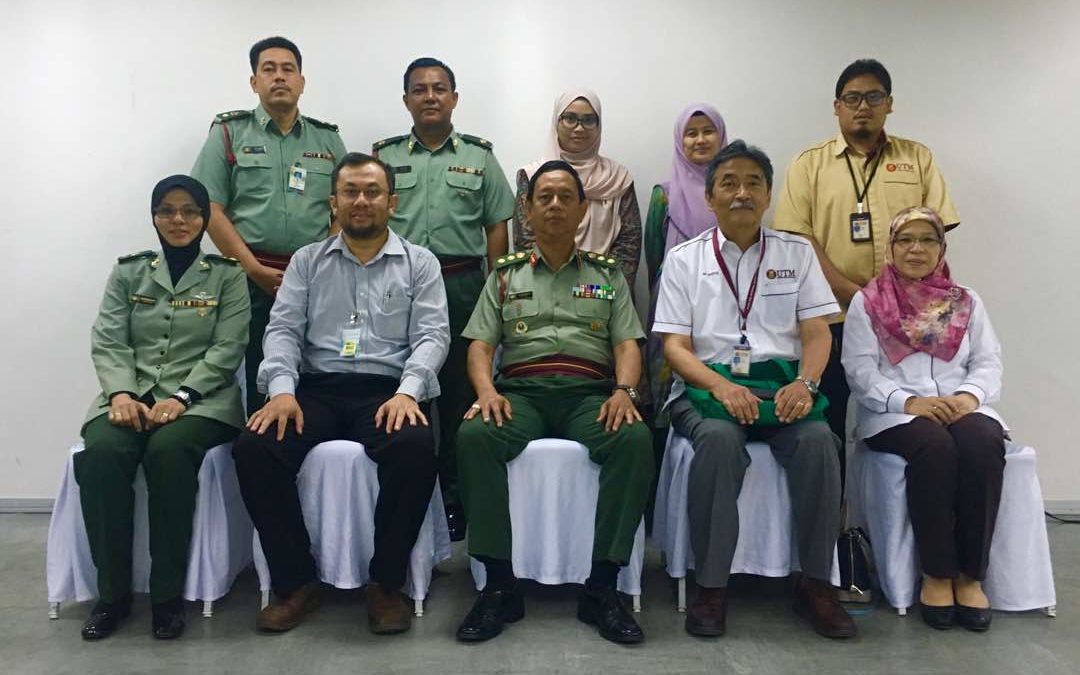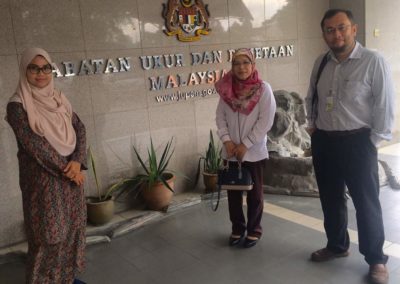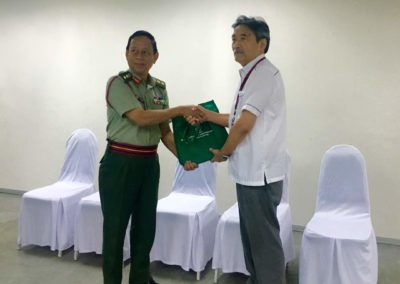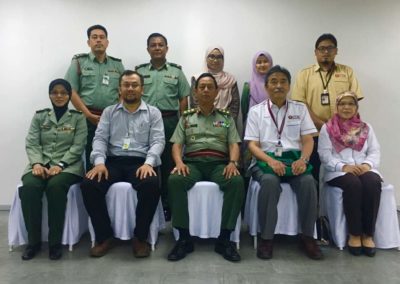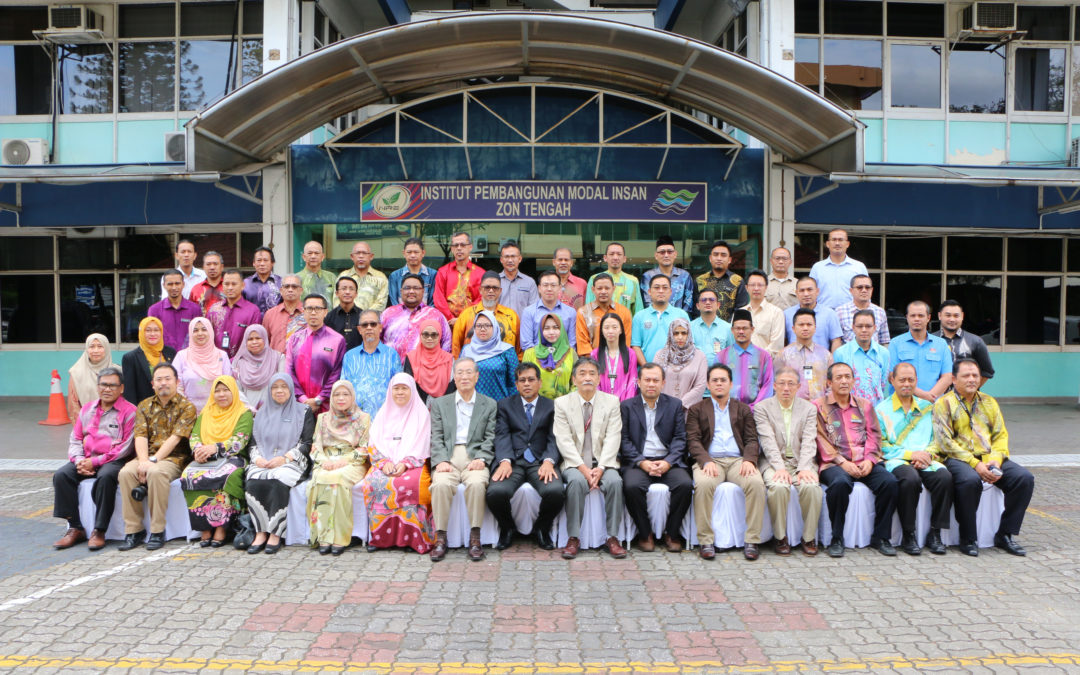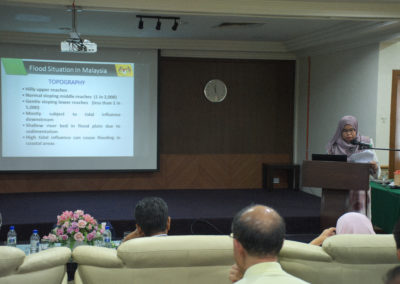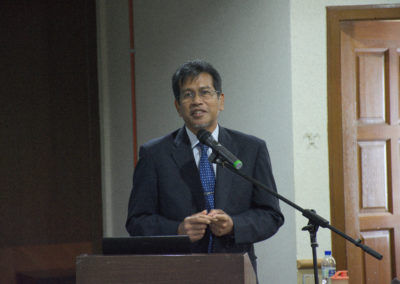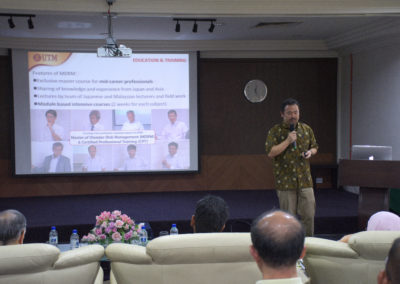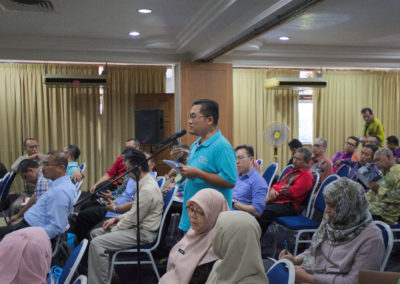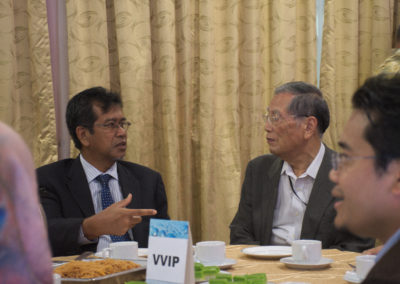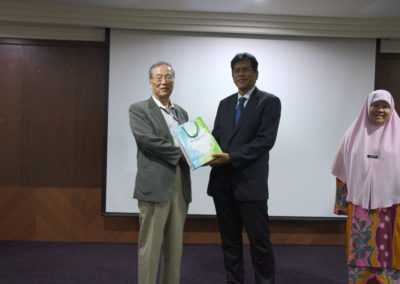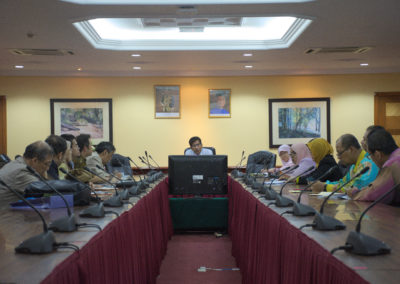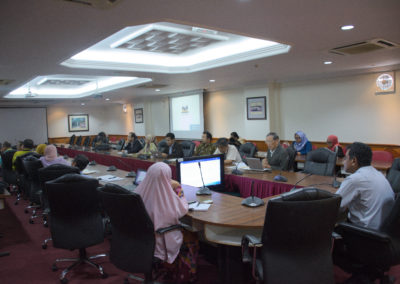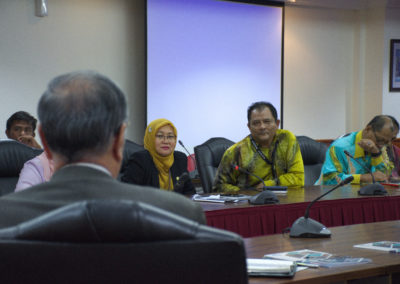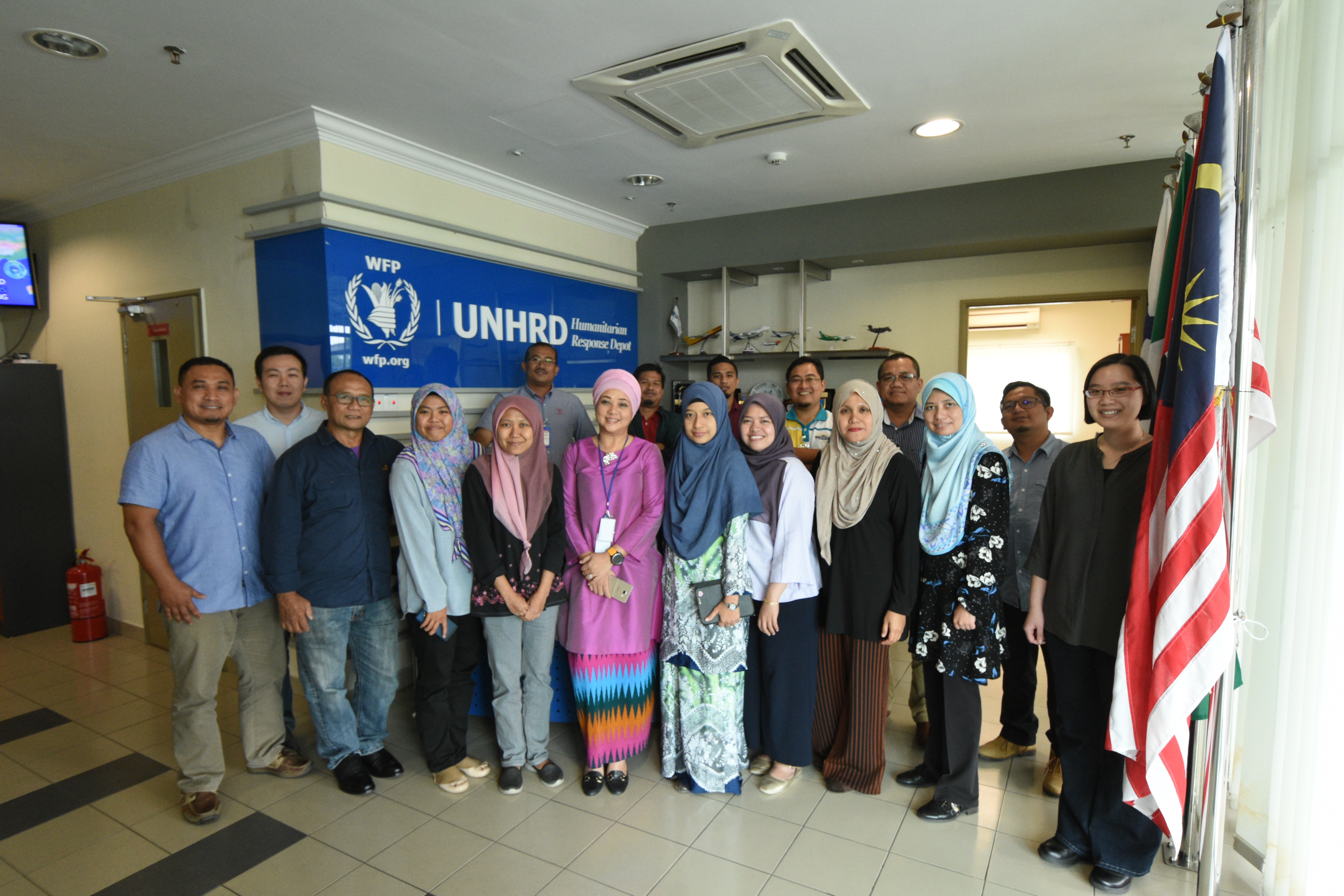
Humanitarian Supply Chain Training at the United Nations Humanitarian Response Depot (UNHRD)
MDRM Program Attends 1-day Humanitarian Supply Chain Training at the United Nations Humanitarian Response Depot (UNHRD)
On 20 March 2018, the Master of Disaster Risk Management (MDRM) program visited the United Nations Humanitarian Response Depot (UNHRD) in Shah Alam as part of the MMJD 1293 Healthcare in Emergencies and Rehabilitation course work. This visit was organized by Dr. Aznah Nor Anuar, course coordinator and senior lecturer of MJIIT and Ms. Azura binti Ibrahim, National Consultant of UNHRD.We would like to thank Ms. Azura and the UNHRD team for accepting the MDRM students for the training and sharing their rich experiences in humanitarian operation management.
| Schedule | Activity |
|---|---|
| 9.00 a.m. | Introduction – UNHRD Roles, Objective of Training and Definition of Humanitarian Supply Chain. Basically the 3 main objectives of the training and UNHRD expectations are: Capacity building: To review, agree on and assimilate basic concepts on the subjects of Humanitarian Supply Chain, Interagency Coordination, Preparedness and Information management. Coordination: To share experiences, to present different operational approaches and to suggest possible standards of operation. Networking: To facilitate a direct encounter between some of the major field actors involved in the emergency responses. |
| 10.00 a.m. – 11.30 a.m. | Emergency Supply Chain • Discuss what the humanitarian supply chain and its component parts (sourcing to beneficiary) • Discuss the phases of an emergency and key responses • Discuss the basic needs of disaster affected population and prioritisation during emergencies |
| 11.30 a.m. – 12.30 p.m. | Logistics and Assessment Planning • Discuss the objective and timing of a logistics assessment • Discuss the appropriate scope and content of a logistics assessment • Discuss how logistics networks are designed and configured |
| 01.00 p.m. – 02.00 p.m. | Visit to Warehouses and Emergencies Hubs • Discuss the function of warehouses and operational support equipment • Discuss the criteria used to assess suitable sites for logistics bases • Discuss the equipment deployed to support operational setup in emergencies |
| 02.00 p.m. – 03.30 p.m. | Disasters and Unsolicited Donations • Discuss some myths and realities of disasters • Discuss what to do and what not to do • Discuss what to donate and what not to donate |
| 03.30 p.m. – 04.30 p.m. | Medical Logistics • Discuss scope of a Medical Supply Chain • Discuss the specific Supply Chain characteristics and features that are required for medical aid programmes • Discuss what medical items are used in medical aid programmes |
Lesson Learned:
• The UN Humanitarian Response Depot (UNHRD) in Kuala Lumpur supports in emergency preparedness and response in Asia. In addition to procuring, storing and rapidly dispatching items on behalf of humanitarian partners, it also hosts a variety of trainings that provide participants with first-hand, practical emergency response experience. The depot was built in 2012 and is generously made available by the Government of Malaysia.
• In addition to the depots’ warehousing facilities, UNHRD is pleased to provide a range of fully equipped training services and facilities across the Network where various humanitarian trainings can be held. Moreover, as part of WFP’s efforts to enhance emergency preparedness and disaster response, humanitarian organizations can also use UNHRD’s training facilities for scenario-based exercises and simulations to prepare local partners, government counterparts, contractors and WFP staff for the field.
For photos of this event, please visit HERE

